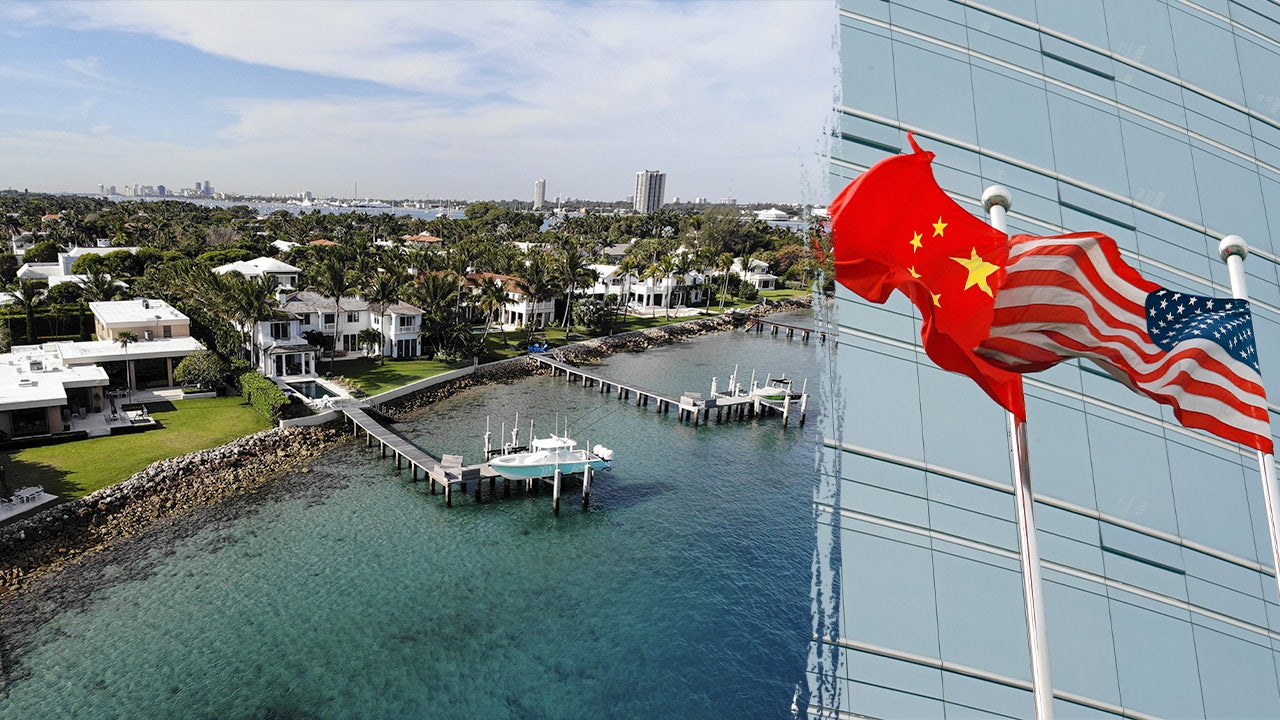United States
China expands influence near wealthy Florida enclave as migrants from communist country flood into US

China’s growing presence in the Caribbean and Central America has sparked concerns among U.S. officials and experts, as it could grant Beijing strategic access to regions long considered “America’s backyard.” This increasing influence coincides with a dramatic rise in encounters with Chinese nationals at the U.S. border, raising questions about China’s motives and the potential implications for national security. The Caribbean, often referred to as “America’s third border” due to its proximity to the U.S., has been a focal point of Chinese investment in recent years, particularly in maritime logistics and infrastructure projects. Experts like Gordon G. Chang, an author and expert on U.S.-China relations, warn that these investments are part of a broader strategy to expand China’s influence in a region critical to U.S. interests.
One of the most notable examples of Chinese investment in the Caribbean is the $3.4-billion Freeport Container Port project in the Bahamas, located just 87 miles east of Palm Beach, Florida. This project, along with other initiatives, has raised eyebrows in Washington, as it positions China closer to the U.S. mainland. A report from the House Foreign Affairs Committee revealed that China invested over $10 billion in six Caribbean countries between 2005 and 2022, highlighting Beijing’s efforts to strengthen its economic and political ties in the region. Chang underscores that these investments are not merely economic but are part of a strategic effort to gain influence in a region that is both geographically and politically significant to the United States.
The Panama Canal, another critical waterway in the region, has also become a point of contention. During his inauguration speech, President Donald Trump emphasized the need to retake control of the canal, which he claimed was now under Chinese influence. While the U.S. transferred ownership of the Panama Canal to Panama in 1999 under the Torrijos-Carter Treaties, the canal’s neutrality is guaranteed, and the U.S. retains the right to ensure its operation. However, Chinese companies have made significant investments in ports and terminals near the canal, with a Hong Kong-based firm operating two of the five ports near its entrances. Chang warns that China’s presence in the Canal Zone is not through military might but through economic power, with Chinese firms using “business attire, large checkbooks, and suitcases of cash” to expand their influence. He argues that the U.S. needs to counter this with its own economic and diplomatic efforts to prevent China from gaining undue control over this vital waterway.
The Trump administration has indicated a shift in focus toward the Western Hemisphere, with Secretary of State Rubio’s first foreign trip being to Panama. This move, according to Chang, signals that the administration is prioritizing the region, a departure from past policies that often overlooked the strategic importance of Central and South America. Chang notes that this is the first time in over a century that a U.S. president has made the region nearest to the U.S. a primary focus of foreign policy. This shift in attention is not just about countering China but also about addressing the broader security and economic challenges in the region.
Parallel to China’s growing economic influence in the Caribbean and Central America, there has been a significant increase in encounters with Chinese nationals at the U.S. border. According to a May 2024 report by the House Homeland Security Subcommittee on Oversight, Investigations, and Accountability, the number of Chinese migrants apprehended at the border has surged dramatically since 2021. In Fiscal Year 2022, there were 1,970 encounters, which jumped to over 24,000 in Fiscal Year 2023 and 24,376 in just the first half of Fiscal Year 2024. Chang highlights that this influx has shifted from family groups fleeing China to primarily single men of military age, traveling alone and claiming they do not speak English. Border Patrol agents have also observed that some groups of migrants carry identical gear, a detail that Chang describes as an “ominous sign.”
The confluence of China’s economic expansion in the Caribbean and Central America with the rising number of Chinese nationals at the U.S. border has raised alarms about potential security threats. Chang and other experts warn that China’s strategic investments and growing influence in the region could have long-term implications for U.S. national security, particularly if Beijing gains control over critical infrastructure like the Panama Canal or establishes a stronger foothold near the U.S. mainland. The U.S. has historically taken the security of its backyard for granted, but the rapid changes in the region underscore the need for a more proactive and comprehensive strategy to counter China’s growing presence. As the competition between the U.S. and China continues to escalate, the Caribbean and Central America have emerged as critical battlegrounds in the race for influence and control.
-
Money3 days ago
Consumer Financial Protection Bureau Adds Error Message To Home Page
-
Australia23 hours ago
Tropical Cyclone Zelia intensifies to category 2 storm
-
Money2 days ago
Winning Content Strategies For Wealth Managers
-
Asia24 hours ago
What you need to know about 2024 YR4, the asteroid that could hit Earth in about eight years’ time
-
Entertainment16 hours ago
Prince Harry and Meghan Markle’s Best Moments and Photos From the 2025 Invictus Games
-
Australia10 hours ago
Tropical Cyclone Zelia intensifies to category five system off Pilbara coast
-
Politics1 day ago
Dozens of religious groups sue to stop Trump admin from arresting migrants in places of worship
-
Entertainment3 days ago
Every Celebrity Who Attended the 2025 Super Bowl: A Guide to the A-Listers at the Big Game